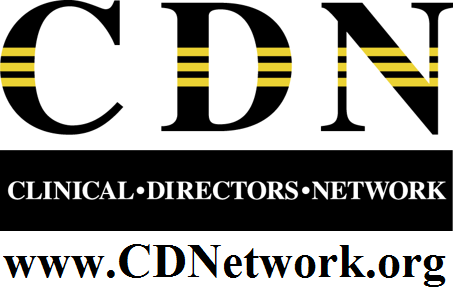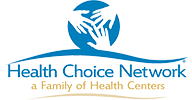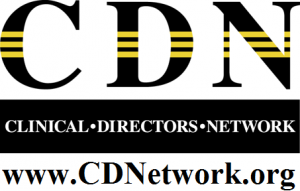This project’s overall Specific Aims are to:
- Provide education, training, career development, and mentoring to enhance research excellence in our Clinical and Translational (C/T) research workforce
- Advance C/T research through partnerships and innovative methods of engaging diverse stakeholders
- Integrate disciplines and translational phases to accelerate discovery that benefits the health of diverse populations and individuals across the lifespan
- Ensure research processes expedite the conduct of research and add to our understanding of the principles of advancing translational science
- Manage a dynamic program of informatics and computational functionality, training, consultation, and development for researchers to effectively use technology to advance their research.
To obtain Continuing Medical Education (CME) Credits for your participation in the enduring activities,
please complete the evaluations at the bottom on sessions 1, 2, 5, 7 & 11.
- Session 1: Research Done Differently: The Ins and Outs of Patient-Centered Outcomes Research
- Session 2: Intersection of Quality Improvement (QI) and Research
-
Session 3: Introduction to Patient Centered Outcomes Research (PCOR): Developing a Study and Study Questions
-
Session 4: Research Ethics, IRB, and Good Clinical Research
- Session 5: Navigating Community Data: HRSA’s Universal Data System (UDS) and Current Population Health Tools
-
Session 6: Taking the Pain Out of P-Values
- Session 7: Partnering with Community to Improve Health
-
Session 8: Grant Planning and Writing
-
Session 9: Enhancing Community Health Center PCOR Engagement (EnCoRE)
-
Session 10: Patient Engagement in Selecting and Designing Interventions for Testing
- Session 11: Incorporating Patient Voice into Meaningful Research: Lessons learned from a Eugene Washington Engagement Award
Research Done Differently: The Ins and Outs of Patient-Centered Outcomes Research
Speaker:
Ayodola Anise, MHS
Program Officer in the Healthcare Delivery and Disparities Research program at the Patient-Centered Outcomes Research Institute (PCORI)
Summary of Session Goals:
-
- This session aims to provide a case example of the development and implementation of a research advisory board; the Bureau of Sages. The session will walk participants through the process of working collaboratively with patients and stakeholders to write a research proposal, implement the project, sustain it, and then build towards translation and dissemination. We will share lessons learned and discuss future directions.
Learning Objectives:
1. Understand the differences between quality improvement and research and where they intersect.
2. To describe the PCORI application and merit review process, including an approach to designing patient-centered comparative effectiveness research studies to address key evidence gaps
3. To be aware of the funding opportunities available to researchers, clinicians, patients and stakeholder partners
A live webcast sponsored by:
AllianceChicago and Clinical Directors Network, Inc. (CDN)
This webcast is funded through a Patient-Centered Outcomes Research Institute (PCORI) Eugene Washington PCORI Engagement Award (6043-ACCH)
This activity is approved for up to 1.5 Prescribed CME credits by the American Academy of Family Physicians (AAFP). Please complete the enduring evaluation for enduring Credit:
Click here to complete the evaluation!
Intersection of Quality Improvement (QI) and Research
Speaker:
Lisa Hirschhorn, MD, MPH
Professor of Medical Social Sciences and Psychiatry and Behavioral Sciences, Northwestern University Feinberg School of Medicine
Summary of Session Goals:
-
- Explore the differences between quality improvement and research and where they intersect.
-
- Discuss implementation science, improvement science, as well as frameworks and models and how they can bridge the gap between QI and research.
-
- Provide an overview of research study and evaluation designs.
-
- Review real-life examples of transforming QI projects to research.
Learning Objectives:
1. Understand the differences between quality improvement and research and where they intersect.
2. Develop an understanding of how implementation science, improvement science and frameworks can help bridge the gap between QI and research.
3. Learn to begin to structure QI work to include scientific methods to better create generalizable knowledge.
A live webcast sponsored by:
AllianceChicago and Clinical Directors Network, Inc. (CDN)
This webcast is funded through a Patient-Centered Outcomes Research Institute (PCORI) Eugene Washington PCORI Engagement Award (6043-ACCH)
This activity is approved for up to 1.5 Prescribed CME credits by the American Academy of Family Physicians (AAFP). Please complete the enduring evaluation for enduring Credit:
Click here to complete the evaluation!
Introduction to Patient Centered Outcomes Research (PCOR):
Developing a Study and Study Questions
Speaker:
Jonathan N. Tobin, PhD
President/CEO, Clinical Directors Network, Inc., Professor, Department of Epidemiology & Population Health, Albert Einstein College of Medicine of Yeshiva University, Co-Director for Community Engaged Research & Adjunct Professor Allen and Frances Adler Laboratory of Blood and Vascular Biology, Center for Clinical and Translational Science, The Rockefeller University
Summary of Session Goals:
To adapt, enhance, and implement an existing year long training curriculum designed to educate and engage Health Center teams including patients, clinical and administrative staff in Patient Centered Outcomes Research (PCOR).
Learning Objectives:
1. Define PCOR and why this is important to CHCs.
2. Determine how to form a hypothesis.
3. Understand study design, human subjects research, and literature search basics.
A live webcast sponsored by:
Clinical Directors Network, Inc. (CDN), National Association of Community Health Centers (NACHC)
This webcast is partially supported through a Patient-Centered Outcomes Research Institute (PCORI) Program Award (NCHR 1000-30-10-10 EA-0001).
Research Ethics, IRB, and Good Clinical Research
Speakers:
Leah Zallman MD, MPH
Junior Scientist, Institute for Community Health, Instructor of Medicine, Harvard Medical School
Rosy Chang Weir, PhD
Director of Research Association of Asian Pacific Community Health Organizations (AAPCHO)
Ho`oipo DeCambra, M.Ed.
Summary of Session Goals:
To adapt, enhance, and implement an existing year long training curriculum designed to educate and engage Health Center teams including patients, clinical and administrative staff in Patient Centered Outcomes Research (PCOR).
Learning Objectives:
1. Understand ethical challenges in community and patientengaged research.
2. Examine Institutional Review Boards (IRB).
3. Recognize the importance of cultural competency in research.
A live webcast sponsored by:
Clinical Directors Network, Inc. (CDN), National Association of Community Health Centers (NACHC)
This webcast is partially supported through a Patient-Centered Outcomes Research Institute (PCORI) Program Award (NCHR 1000-30-10-10 EA-0001).
Navigating Community Data:
HRSA’s Universal Data System (UDS) and Current Population Health Tools
Speaker:
Andrew Hamilton, RN, BSN, MS
Chief Informatics Officer/Deputy Director, AllianceChicago
Michael Nudo, MNA, CNP
Grants and Resource Development Manager, AllianceChicago
Summary of Session Goals:
-
- Describe the Learning Healthcare System and how it plays a role in quality improvement and research.
-
- Provide an overview of HRSA’s UDS Website and Mapper and demonstrate how to navigate tools to compare UDS performance measures at national, state, and local levels.
-
- Explain how Community Health Centers can use population health tools to better understand their patient population and inform research to improve patient health outcomes.
-
- Utilize a case-study throughout the session to demonstrate how these tools can support the development of research questions targeted to specific disease states.
Learning Objectives:
1. Understand the importance of the Learning Healthcare System in Patient-Centered Outcomes Research.
2. Learn how to navigate HRSA’s UDS Website and Mapper to compare Community Health Center performance measures.
3. Describe current population health tools that can be utilized by Community Health Centers to help develop relevant research projects.
A live webcast sponsored by:
AllianceChicago and Clinical Directors Network, Inc. (CDN)
This webcast is funded through a Patient-Centered Outcomes Research Institute (PCORI) Eugene Washington PCORI Engagement Award (6043-ACCH)
This webcast is approved for up to 1.5 Prescribed CME credits by the American Academy of Family Physicians (AAFP). Please complete the enduring evaluation for enduring Credit:
This activity is approved for up to 1.5 Prescribed CME credits by the American Academy of Family Physicians (AAFP). Please complete the enduring evaluation for enduring Credit:
Click here to complete the evaluation!
Taking the Pain out of P-Values
Speaker:
Sandra Tilmon, MPH
Research Manager, The Extension for Community Health Outcomes (ECHO)- Chicago, The University of Chicago
Summary of Session Goals:
Clinical providers tend to have limited time to review journal articles. This talk will provide an intuitive overview of journal article structure and of biostatistics.
Learning Objectives:
1. Understand a journal article’s structure and how to navigate
your way around it.
2. Gain an intuitive understanding of those pesky biostatistics
and what common terms mean.
3. Review an academic article beyond the abstract and
summarize the main points.
A live webcast sponsored by:
AllianceChicago and Clinical Directors Network, Inc. (CDN)
This webcast is funded through a Patient-Centered Outcomes Research Institute (PCORI) Eugene Washington PCORI Engagement Award (6043-ACCH)
Partnering with Community to Improve Health
Speakers:
Mary Brown Walker, DHA, MSN-APN
Director of Nursing, Friend Family Health Center
Claire Kohrman, PhD
Consultant, Community Research and Training
Summary of Session Goals:
-
- Define Community-Placed, Community-Based, and Community-Engaged Research.
-
- Discuss benefits and challenges of community-engaged research.
-
- Outline steps necessary to develop and implement community-engaged research.
-
- Consider examples of different types of community-engaged research projects and their impact.
Learning Objectives:
1. Understand the importance, challenges, and benefits of community-engaged research
2. Recognize the differences and similarities between community-engaged, community-based, community-based participatory, and patient-engaged research.
3. Identify the actions needed to develop and implement community-engaged research.
A live webcast sponsored by:
AllianceChicago and Clinical Directors Network, Inc. (CDN)
This webcast is funded through a Patient-Centered Outcomes Research Institute (PCORI) Eugene Washington PCORI Engagement Award (6043-ACCH)
This activity is approved for up to 1.5 Prescribed CME credits by the American Academy of Family Physicians (AAFP). Please complete the enduring evaluation for enduring Credit:
Click here to complete the evaluation!
Grant Planning and Writing
Speaker:
Leah Zallman, MD, MPH
Junior Scientist, Institute for Community Health, Instructor of Medicine, Harvard Medical School
Dale Fielder, MS
Corporate Director, Planning & Development, Southern Illinois Healthcare Foundation
Danielle Lazar AM, PhD Candidate
Director of Research, Access Community Health Network
Summary of Session Goals:
The goal of this session is to explore PCORI funding opportunities, provide background on the grant review process and demonstrate how to develop grant elements such as biosketches, budgets and timelines, letters of support and more.
Learning Objectives:
1. Demonstrate how to review a request for proposals (RFP).
2. Apply a step-wise approach to grant writing.
3. Recognize best practices and potential pitfalls of grant
writing.
A live webcast sponsored by:
Clinical Directors Network, Inc. (CDN), National Association of Community Health Centers (NACHC)
This webcast is partially supported through a Patient-Centered Outcomes Research Institute (PCORI) Program Award (NCHR 1000-30-10-10 EA-0001).
Enhancing Community Health Center PCOR Engagement (EnCoRE)
Speaker:
Michelle Jester, MA
National Association of Community Health Centers
Rosy Chang Weir, PhD
Association of Asian Pacific Community Health Organizations (AAPCHO)
Summary of Session Goals:
The goal of this session to build infrastructure to strengthen the patient-centered comparative effectiveness research (CER) capacity of Health Centers team as they develop or expand their own research infrastructure. This session is designed to educate and engage Health Center teams in Patient Centered Outcomes Research (PCOR) and will prepare Health Center patients, staff, and researchers in the conduct of community-led PCOR.
Learning Objectives:
1. Review community engagement methods and models.
2. Discuss barriers to community engagement in research.
3. Identify potential selection bias in community engagement.
A live webcast sponsored by:
Clinical Directors Network, Inc. (CDN), National Association of Community Health Centers (NACHC)
This webcast is partially supported through a Patient-Centered Outcomes Research Institute (PCORI) Program Award (NCHR 1000-30-10-10 EA-0001).
Patient Engagement in Selecting and Designing Interventions for Testing
Speaker:
Rosy Chang Weir, PhD
Director of Research Association of Asian Pacific Community Health Organizations (AAPCHO)
Suzanne Schrandt, JD
Deputy Director of Patient Engagement, Patient-Centered Outcomes Research Institute (PCORI)
Learning Objectives:
1. Learn methods of patient engagement within research
project life cycle.
2. Define patient engagement principles and evaluation
methods.
3. Examine the patient perspective, patient engagement plan, and patient engagement principles.
A live webcast sponsored by:
Clinical Directors Network, Inc. (CDN), National Association of Community Health Centers (NACHC)
This webcast is partially supported through a Patient-Centered Outcomes Research Institute (PCORI) Program Award (NCHR 1000-30-10-10 EA-0001).
Incorporating Patient Voice into Meaningful Research:
Lessons learned from a Eugene Washington Engagement Award
Speaker:
Amy Eisenstein, PhD
Director of Research and Continuous Quality Improvement, CJE SeniorLifeDirector of Nursing, Friend Family Health Center
Rebecca Berman, PhD
Senior Investigator, CJE SeniorLife
Summary of Session Goals:
This session aims to provide a case example of the development and implementation of a research advisory board; the Bureau of Sages. The session will walk participants through the process of working collaboratively with patients and stakeholders to write a research proposal, implement the project, sustain it, and then build towards translation and dissemination. We will share lessons learned and discuss future directions.
Learning Objectives:
1. Describe the development and application process for an
engagement award.
2. Understand how to incorporate voice of patients and
stakeholders into meaningful research.
3. Discuss lessons learned and opportunities for translation and
dissemination of similar programs.
A live webcast sponsored by:
AllianceChicago and Clinical Directors Network, Inc. (CDN)
This webcast is funded through a Patient-Centered Outcomes Research Institute (PCORI) Eugene Washington PCORI Engagement Award (6043-ACCH)
☰ Slideset
This activity is pending for up to 1.5 Prescribed CME credits by the American Academy of Family Physicians (AAFP). Please complete the enduring evaluation for enduring Credit:
Click here to complete the evaluation!


